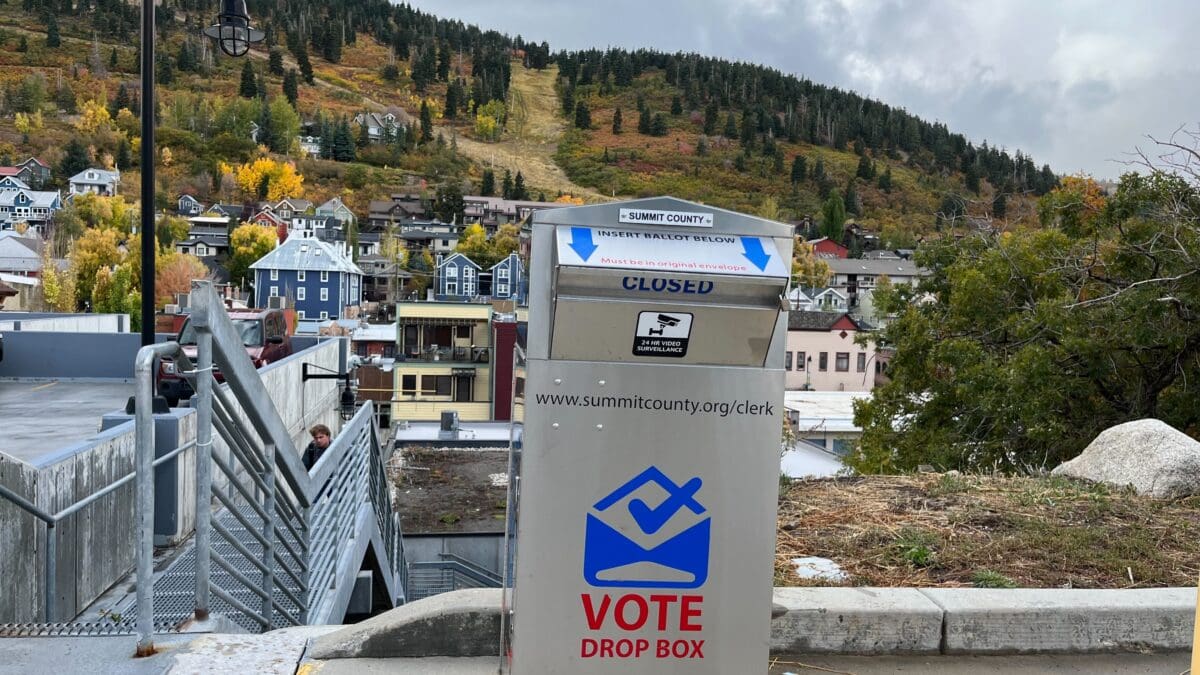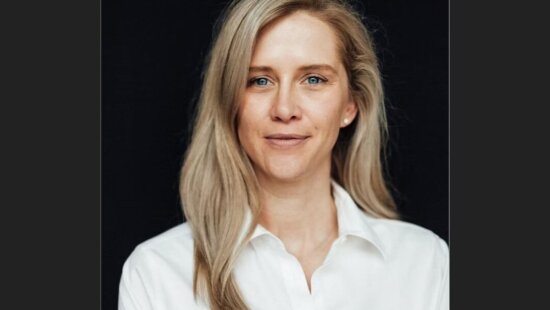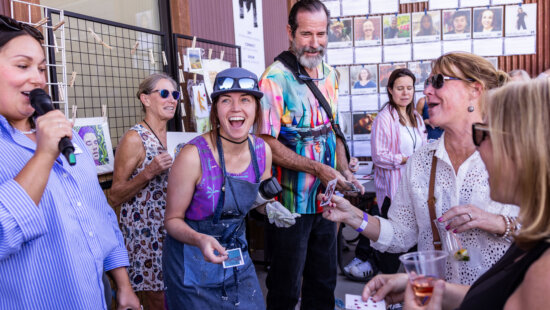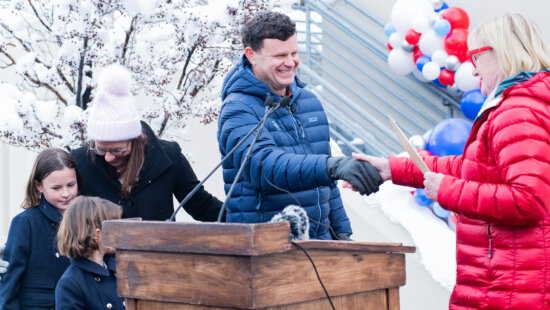Town & County
Park City Council reverses Ranked Choice Voting decision; Mayor and residents decry u-turn

Park City Ballot Drop Box Photo: TownLift
“Every election matters, and with the Olympics coming in 2034, these next terms could shape the future of Park City for a generation.” ~ Park City Mayor Nann Worel
PARK CITY, Utah — The Park City Council voted Monday to abandon its March decision to use ranked choice voting (RCV) in the upcoming 2025 municipal election—just two days before the state’s opt-in deadline. The reversal, led by Councilmember Bill Ciraco’s change of heart, was criticized by Mayor Nann Worel and dozens of residents, who called the move a blow to public trust and transparency.
“I don’t remember this ever happening,” Worel said, referring to the abrupt policy reversal. “You don’t get do-overs in public office just because someone second-guesses a vote.”
Ciraco, who originally voted in favor of RCV, said the decision to reverse course was the result of intense personal reflection—not politics or pressure.
“I made a mistake,” he said during the special meeting. “I believe honesty and humility require me to say that publicly. This isn’t about partisan politics—this is about listening, reflecting, and being honest with the people I represent.”
In an interview following the meeting, Ciraco said that his internal debate about the issue spanned several weeks and culminated during a recent vacation in Mexico, where he had time to “get out of the noise” and think clearly.
“I continued to ask myself: did I make the right decision?” he said. “I wish that urge wasn’t so strong—it keeps me up at night—but it’s just how I’m wired.”
Ciraco said the technical aspects of RCV ultimately gave him pause. While he expressed confidence in the voting tabulation software—RCTab—he said the process added complexity that could confuse older voters, a key demographic in Park City.
“I didn’t think deeply enough about how hard this might be to explain or how it might affect senior voters,” he said. “The last thing I want to do is make life more complicated for people who’ve given so much to this community.”
He also revisited the Utah Valley University study often cited in favor of RCV, noting it was a public opinion survey—not a scientific study of outcomes—and showed nearly equal preference for traditional and ranked voting. “The biggest takeaway was that older voters reported the most confusion with RCV,” he said.
Monday’s decision to repeal RCV was passed by a majority of the council. Councilmembers Jeremy Rubell and Ed Parigian also supported the reversal, while Councilmembers Tana Toly and Ryan Dickey opposed the move, citing concerns about fairness and transparency.
Worel echoed those concerns, pointing out that of the 27 public comments four at the meeting spoke in favor of keeping the current voting system while all others were in support of RCV.
“We had many public meetings before the original vote. This wasn’t rushed,” Worel said during an interview Tuesday. “And if he experienced regret over his vote, so be it. But that does not mean we should begin revisiting decisions every time an individual reconsiders how they voted.”
When asked why she thought so many people turned out for the public comment opportunity on RCV she surmised it was because a ranked choice election would be effective at cutting out candidates at the extreme ends of the spectrum.
“Once the extremes are cut out, what’s left? The choices are more moderate, more representative of the entire community,” Worel said.
Notable speakers at the Monday hearing in support of RCV included former Planning Commission Chair, and former Park City Community Foundation board member, Sarah Hall, former City Councilmember Max Doilney, Virginia Solomon, President of Summit Pride Foundation and current Park City Community Foundation board member and former CEO of the National Ability Center, Danny Glasser.
“This is this is clearly bringing partisan politics to Park City, which is uniquely anti-Park City. We have always been independent in nature,” Doilney said.
Doilney continued by expressing dismay and disappointment in the process brought forth by Ciraco.
“I had to come here and let you know that this is sort of a seminal moment. Bill is daylighting to everybody exactly what and who he is,” Doilney said.
Park City resident and campaign strategist Angela Moschetta said she was generally a supporter of ranked choice voting, but only in large cities or districts where races draw a large number of candidates with diverse views. “Here in our small town, ranked choice voting does not solve a problem we actually have. Our elections are straightforward, typically involving candidates known in the community, for those less known, a longer campaign season gives voters time to get acquainted and differentiate among other candidates,” Moschetta said.
In her comments Moschetta also said people speaking a the special meeting in favor of ranked choice were the ones making the issue a partisan one
“The greatest threat to fair elections in Park City today is the quiet advancement of a coordinated slate inside a ranked choice system. Simply put, it is an attempt to rig this election at both the mayoral and council levels. in a small town, trust and accountability must come first,” Moschetta said.
Reverting to traditional voting will accelerate the timeline for candidates. Filing for Park City’s two city council seats and the mayor’s office now opens June 1, rather than August, because RCV would have eliminated the need for a primary.
Councilmember Ryan Dickey, who is running for mayor and supports RCV has publicly questioned the timing of Ciraco’s reversal, calling it a strategic maneuver that could disadvantage potential candidates.
Ciraco denied those claims.
“This wasn’t part of some grand plan,” he said. “I didn’t strategize with anyone. It was an honest reckoning with myself.”
The city will hold a candidate information session on May 6, with filing open from June 1 to June 9.
“Every election matters,” Worel said. “And with the Olympics coming in 2034, these next terms could shape the future of Park City for a generation.”



















